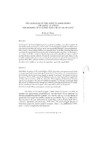Identificador persistente para citar o vincular este elemento:
https://accedacris.ulpgc.es/jspui/handle/10553/59141
| Campo DC | Valor | idioma |
|---|---|---|
| dc.contributor.author | Clouet, Richard | en_US |
| dc.date.accessioned | 2019-12-17T16:56:54Z | - |
| dc.date.available | 2019-12-17T16:56:54Z | - |
| dc.date.issued | 2004 | en_US |
| dc.identifier.issn | 0212-4130 | en_US |
| dc.identifier.other | Dialnet | |
| dc.identifier.uri | https://accedacris.ulpgc.es/handle/10553/59141 | - |
| dc.description.abstract | La elección de The Smell of Apples, la primera novela de Mark Behr, como objeto empírico de este estudio puede parecer poco convencional. The Smell of Apples se puede considerar como una obra muy compleja que nos hace entrar en la mentalidad Afrikaner, una mentalidad también compleja, con sus puntos débiles y sus contradicciones. Es un libro sobre la pérdida de la inocencia y la importancia de la memoria, sobre la indoctrinación comunista y las abominaciones racistas. Mark Behr concibió su historia al principio de los años 90, una época cuando el país hacía frente a cambios radicales. Después de cincuenta años de supremacia blanca, el país se estaba transformando, poco a poco, en una democracia, pero la mayoría de los escritores, al igual que Mark Behr, quisieron enseñar a sus lectores los horrores del pasado Afrikaner. | en_US |
| dc.description.abstract | Mark Behr, the author of The Smell of Apples (1993), epitomises a new generation of writers in the post-apartheid literary landscape of South Africa. These writers, in a reconciled nation still in limbo, refer to the excruciating past to explore it and search for answers and keys to the present. Prior to 1990, most of the Afrikaners relied on what they had been taught both at home and at school to justify the colour bar. The acceptance of democracy, however, implied re-evaluation of the past and of Afrikaner dogmas. The feeling of guilt made Mark Behr unveil the Afrikaner myths through the symbolical and allegorical portrayal of Marnus’ family, revealing the destructive power of the past and its effect on the present. | en_US |
| dc.language | eng | en_US |
| dc.relation.ispartof | Revista de Filología de la Universidad de La Laguna | en_US |
| dc.source | Revista de Filología de la Universidad de La Laguna [ISSN 0212-4130] (22), p. 47-54 | en_US |
| dc.subject | 6202 Teoría, análisis y crítica literarias | en_US |
| dc.subject.other | Sudáfrica | en_US |
| dc.subject.other | Narrativa contemporánea | en_US |
| dc.subject.other | Apartheid | en_US |
| dc.subject.other | Culpabilidad | en_US |
| dc.subject.other | South Africa | en_US |
| dc.subject.other | Contemporary fiction | en_US |
| dc.subject.other | Apartheid | en_US |
| dc.subject.other | Guilt | en_US |
| dc.title | The allegory of the apple in Mark Mehr's "The Smell of Apples": the burden of the past and the sense of guilt | en_US |
| dc.type | info:eu-repo/semantics/article | en_US |
| dc.type | Article | en_US |
| dc.identifier.url | http://dialnet.unirioja.es/servlet/articulo?codigo=1056837 | - |
| dc.description.lastpage | 54 | - |
| dc.identifier.issue | 22 | - |
| dc.description.firstpage | 47 | - |
| dc.investigacion | Artes y Humanidades | en_US |
| dc.type2 | Artículo | en_US |
| dc.contributor.authordialnetid | 707236 | - |
| dc.identifier.dialnet | 1056837ARTREV | - |
| dc.identifier.ulpgc | Sí | es |
| dc.description.sellofecyt | Sello FECYT | |
| dc.description.esci | ESCI | |
| dc.description.erihplus | ERIH PLUS | |
| item.fulltext | Con texto completo | - |
| item.grantfulltext | open | - |
| crisitem.author.dept | GIR Traducción e Interpretación, Interculturalidad, Lenguas Aplicadas y Literatura de Viajes | - |
| crisitem.author.dept | Departamento de Filología Moderna, Traducción e Interpretación | - |
| crisitem.author.orcid | 0000-0003-0727-1260 | - |
| crisitem.author.parentorg | Departamento de Filología Moderna, Traducción e Interpretación | - |
| crisitem.author.fullName | Clouet, Richard | - |
| Colección: | Artículos | |
Visitas
91
actualizado el 17-may-2025
Descargas
55
actualizado el 17-may-2025
Google ScholarTM
Verifica
Comparte
Exporta metadatos
Los elementos en ULPGC accedaCRIS están protegidos por derechos de autor con todos los derechos reservados, a menos que se indique lo contrario.
